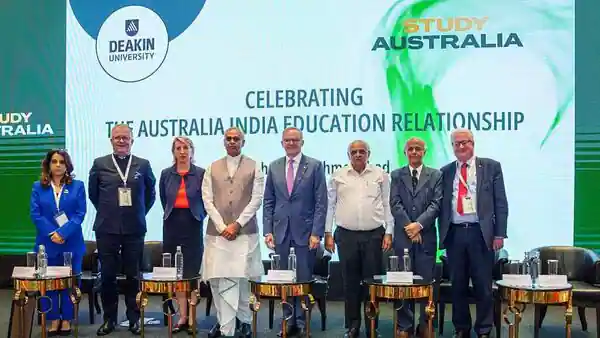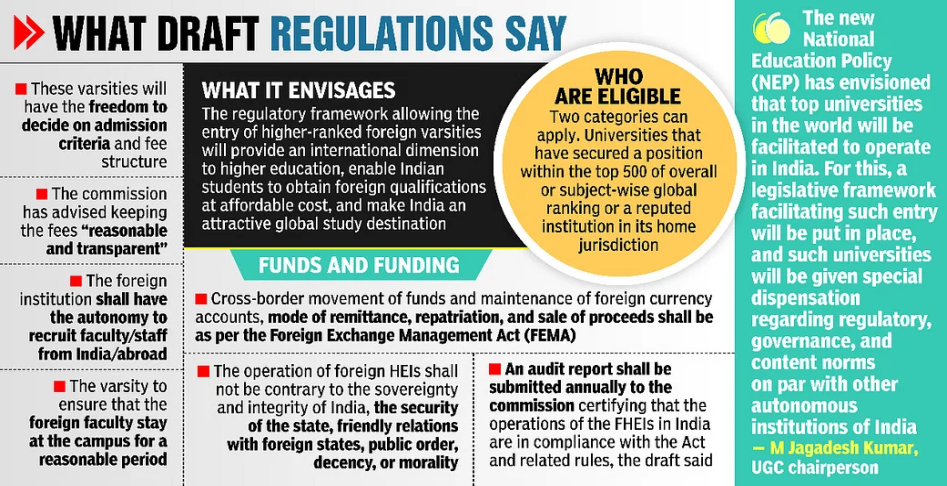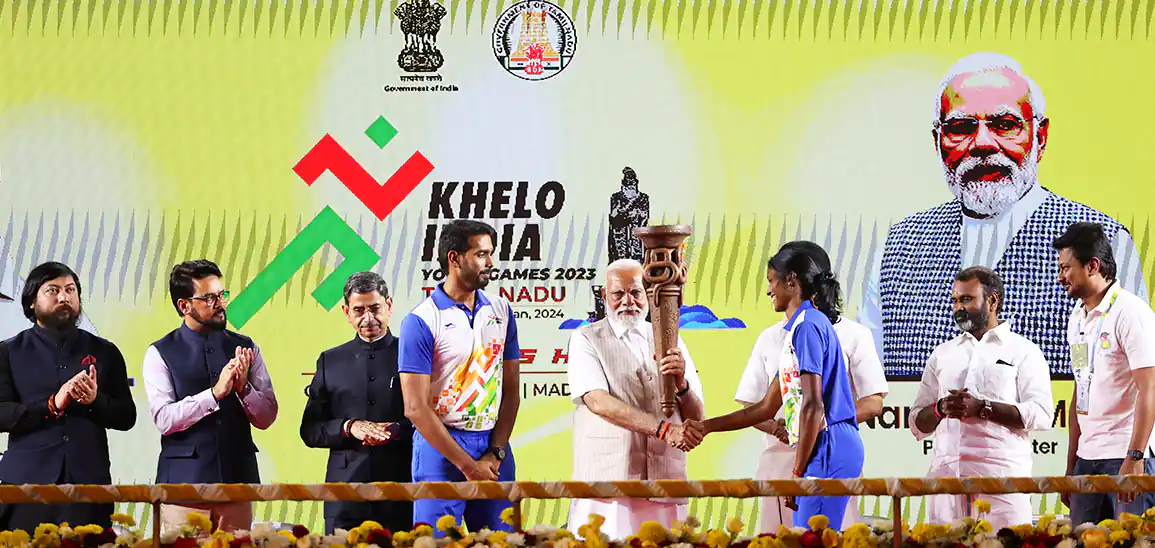Description

Copyright infringement not intended
Context: The announcement of the “Australia-India education qualification recognition mechanism” was made by Australian Prime Minister Anthony Albanese. Also, he introduced the new "Maitri" scholarship, which will allow Indian students to study in Australia for up to 4 years.
About the Australia-India education qualification recognition mechanism
- A "system for the recognition of educational qualifications between Australia and India" was announced by the Australian Prime Minister. He added that Deakin University, located in Geelong, will be the first foreign institution to establish a branch campus in India.
- According to the new mechanism, degrees awarded in Australia will now be recognised in India, and vice versa.
- PM Albanese stated that this new mechanism ensures that whether you are an Indian student studying in Australia or have studied there, your hard-earned degree will be recognised when you return home. He further said that your Indian certificate would be recognised in Australia.
- This agreement is expected to make it easier for Indians to go to Australia for both education and work, and vice-versa.
- At Present, this mechanism will not apply to professional qualifications. Engineering, medical, and legal graduates' professional registrations will continue to fall outside the scope of this agreement.
.jpeg)
‘Maitri’ Scholarship
- Maitri scholarship was announced for Indian students studying in Australia. It will provide financial assistance to Indian students in Australia for four years.
- It is a part of the wider Maitri (friendship) programme that seeks to boost cultural, educational and community ties between Australia and India.
- The $ 11.2 million Maitri Scholarships Program will attract and support high-achieving Indian students to study at Australian universities.
Foreign university in India
- Australian Prime Minister announced that the Deakin University of Australia will open its independent campus in Gujarat's GIFT City, making it the first foreign institution to enter India.
- In the QS World University Rankings, Deakin is ranked 266th and is one of the top 50 young universities in the world.
- According to the Times Higher Education World Rankings, the university is ranked between 250 and 300.
Background
- The National Education Policy (NEP) 2020 stated that "chosen universities, e.g., those from among the top 100 universities in the world will be permitted to operate in India."
- The Finance Minister first stated in her Budget Speech in February 2022 that top international colleges and institutions will be permitted in GIFT City to offer courses in financial management, FinTech, science, technology, engineering, and mathematics.
- In January 2023, the University Grants Commission (UGC) released draft guidelines for encouraging foreign universities and educational institutions to set up campuses in India.
- The draft was open for public comments, and after getting and analyzing feedback from all stakeholders, the final guidelines were notified at the end of January 2023.

Key Points of the UGC guidelines
- A foreign university with a rank among the top 500 global rankings or a foreign educational institution of repute in the home country can apply to the UGC to set up a campus in India.
- The National Education Policy (NEP), 2020 also allowed top universities in the world to operate in India.
- A legislative framework promoting such entry will be put in place.
- They will have special power regarding regulatory, governance, and content norms on par with other autonomous institutions of India.
- UGC will appoint a standing committee to decide on the application within 45 days after examining the institution’s credibility, programmes offered, potential to strengthen educational opportunities in India, and proposed academic infrastructure.
- Within 45 days, the UGC may grant inprinciple approval to the foreign institution to set up campuses in India within two years.
- The initial approval will be for 10 years, which can be extended.
- They can evolve their admission process and criteria to admit domestic and foreign students.
- They will have the autonomy to decide their fee structure and will face no caps that are imposed on Indian institutions.
- The only condition will be that the fee should be “reasonable and transparent”.
- They will have the autonomy to recruit faculty and staff from India and abroad.
- The courses to be offered cannot be online and open and in distance learning mode.
- The qualifications awarded to the students on the Indian campus should have equivalence with those awarded by the institutions in their country of origin.

|
University Grants Commission (UGC)
● University Grants Commission is a statutory body under the University Grants Commission Act, of 1956.
● UGC is charged with the task of coordinating and maintaining standards of higher education in India.
● It provides recognition to universities and also allocates funds to universities and colleges.
● UGC headquarters are in New Delhi, and it also has 6 regional centres.
● All grants to universities and higher learning institutions are handled by the UGC.
● In 2015-16, the Union government initiated a National Institutional Ranking Framework under UGC to rank all educational institutes.
● UGC also conducts the National Eligibility Test (NET) for the appointments of teachers in colleges and universities.
|
Significance of this Step
- It will reduce the Outflow of Indian Money and Brain Drain: Many Indian students choose to pursue degrees from other countries, which results in an outflow of Indian money.
- A recent analysis predicts that by 2024, the amount spent by Indian students studying abroad will rise from its current level of USD28 billion to USD80 billion yearly.
- India has one of the biggest higher education systems in the world, yet its gross enrolment ratio (GER) is among the lowest in the world at just 27.1%.
- The advent of foreign universities in India may increase the enrolment ratio by providing more options for higher education and potentially attracting more students to pursue degrees.
- The presence of international universities in India can promote cross-cultural dialogue and mutual understanding.
- India can improve its standing in the world of education and research by inviting foreign universities here.
Challenges with Foreign Universities Opening in India
- Their educational standards are unlikely to be as high as those of Indian colleges, which could have a negative effect on Indian students' employment chances and future opportunities.
- They generally charge fees that are considerably more than those of Indian institutions, which may make higher education less affordable for students from lower-income households.
- The lack of proper regulatory control may result in situations where students are exploited or have limited remedies in the case of issues.
- Concerns for national security as foreign institutions might be utilised for spying and other unlawful actions.
Way Forward
- For the formation, operation, and recognition of foreign universities in India, the government should set specific rules and regulations. This can ensure that these institutions run in accordance with Indian rules and regulations.
- The government must reform universities in India, which would require several initiatives, including enhancing educational standards, expanding funding for higher education, and promoting research and innovation.
|
PRACTICE QUESTION
Q. Do you agree with the government's recent decision to allow foreign universities to open campuses in India? Critically analyze.
|

https://indianexpress.com/article/explained/explained-global/indian-degrees-recognised-australia-8487675/

















